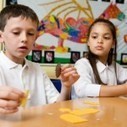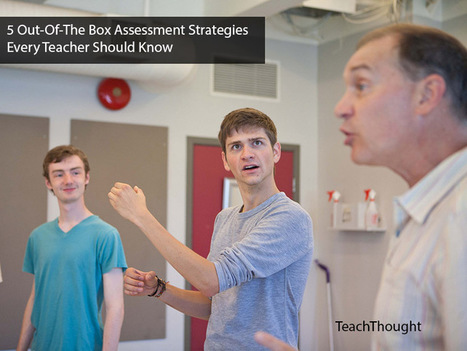"In a high-school art room, I watched a student working at an easel. When I asked about her progress, she explained that she was attempting to paint sunflowers in the style of Monet, her favorite artist. She told me she liked how the flowers were looking but said the vase was giving her trouble. She planned to keep reworking it, applying layers of acrylic until she got the play of light just the way she wanted. Then she laughed and said, “You should see what’s underneath! I bet there are three or four versions beneath this one.”"
Via Beth Dichter



 Your new post is loading...
Your new post is loading...











Working with students and helping them understand their learning process is important. If you are planning on utilizing project based learning then many of the formative assessments you may choose will provide students with an understanding of their learning process.
How can you include more formative assessments? The post looks at three areas.
* Vary assessment strategies.
* Look beyond content mastery.
* Facilitate self-assessment.
Do you have great formative assessments that you use? Consider sharing one in the comment area.
Thx Beth Dichter!